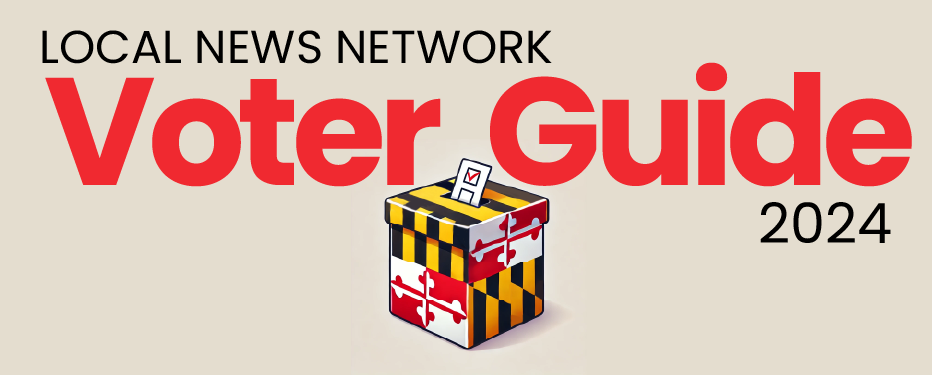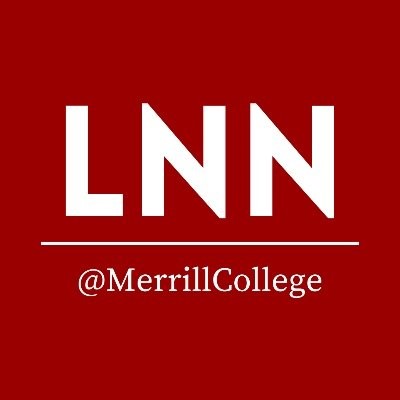John Queen
Running for school board in Kent County
How old will you be on Election Day (Nov. 5)?
46
Are you currently employed? If so, where, and what is your job title?
Community organizer and nonprofit development leader at JMQueen, LLC.
What is the highest level of education that you completed, and where did you get that degree?
Lincoln Technical Institute, HVAC certification.
Why are you running for the school board?
My motivation to run for the Kent County Public Schools Board of Education stems from a desire to see our schools provide students and their families with a positive foundation for their future. As a father of two Kent County public school students, I understand the importance of strong leadership and a dynamic vision for our schools. As a school board candidate, I offer a fresh perspective and a deep commitment to community engagement. Combined with my longtime work supporting Kent County’s youth and families, I believe these qualities uniquely qualify me to serve as Kent County's next board member.
What makes you a good candidate for the board?
With years of experience as a family advocate, youth leader and community organizer at Bayside HOYAS (Helping Our Youth Achieve Success) Inc. in Kent County, and behavioral student advocate in Queen Anne’s and Anne Arundel County public schools, I have a proven track record of implementing effective solutions to address the socio-economic issues that impact our public school including poverty, inclusion and education. My experience running therapeutic circles for children and teens in group foster care settings has also informed my firm understanding of working directly with youth who have mental health issues such as anxiety, depression and early trauma.
What is the most important issue facing your school board and what would you do about it if elected?
My belief is that the most important issue within our school district is strengthening the public schools system career and technical education for students. Students need resources and access to more career-readiness educational programs that boost professionalism, develop their work ethic and prepare them for the next stage. As a youth leader and student advocate I understand a student-first approach, with an emphasis on providing an individualized path for students that supports and builds upon their interests, skills and abilities. As a leader for our public schools, I will encourage developing new programs and training designed to support students in their post-graduate lives as entrepreneurs, professionals, tradespeople, or college students.
If elected I will advocate for college preparation programs to prepare students for secondary education while assisting with critical thinking, time management and research. I will push for financial literacy programs to help students understand financial management, investment and credit, budgeting, and debt and savings to help combat the deep poverty within our community and public school system.
An expansion of our county’s strong existing trade programs—incorporating new agricultural programs that connect local farmers with Kent County Public Schools students to create service-learning hours, teach about food insecurities and food systems, and promote ag-based careers. Leadership development programs to foster the next generation of leaders within our public school system by teaching confidence, conflict resolution and vision.
Please name a public leader you admire and explain why.
My mother, Tonya Coston-Queen, may not be considered a public leader to some, but her leadership and resilience as a single mother allowed me to flourish into the community leader I've become today, and my admiration toward her can not be expressed in 150 words.
The Blueprint for Maryland’s Future, passed by the General Assembly in 2021, is a 10-year plan that includes increased education funding to support early childhood education, increased teacher starting pay, college/career-readiness standards for high school graduates, and expanded services to multilingual and impoverished families, among other goals. Please tell us your views on the Blueprint and how it will affect your school district.
The Blueprint for Maryland’s Future is the state fulfilling its responsibility to fully fund our schools. As a community leader in a rural area, I’ll admit I had my doubts about the reliability of this new funding. The Blueprint for Maryland’s Future starts early, which is the best time to invest in education. The law ensures a pre-kindergarten seat for every 4-year-old in the state and every 3-year-old with specific needs, while increasing resources for families with young children. The Blueprint for Maryland’s Future creates college and career pathways for students to choose from, including agricultural sciences and technical education. This will support our local economy by increasing the earning potential of families from low and middle socioeconomic statuses.
The Blueprint for Maryland’s Future brings our communities together. It creates community schools, which support student achievement by connecting community resources to our students, schools and families. This can include support with housing, food access and after-school learning. The Blueprint can only be successful if we the community are invested and actively hold our elected officials accountable. As a community leader, I agree with the intent of the Blueprint for Maryland’s Future.
Some school districts nationwide are placing new limits on the use of cellphones in middle and high schools. What do you think should be the policy on student use of cellphones in your district, and why do you support that policy?
There should be limitations on cellular usage during core curriculum classes with built-in breaks but few restrictions during electives and extracurricular activities within the schools such as lunch, free periods, class transition and sports. Twenty years ago cellular phones did not exist in the classroom but have now become a way of communication, life and culture for the younger school-aged demographic and their families. The saying "we must pick our battles" often comes to mind while working in the current school environment and cellphone usage.
Are you satisfied with your school district's efforts to ensure the safety of its students? What, if anything, should be done to improve school safety in your district?
All staff, students and caregivers should feel safe within our school district. Our school system should have programs from restorative justice, conflict awareness, health centers and community resources in all schools within our district. Collectively efforts should be designed to address root causes of negative behaviors and create positive school cultures. We should be proactive and not reactive with implementing strength-based resources while reaching the students that need them the most. All staff should have ALICE (short for “alert, lockdown, inform, counter, evacuate” active shooter) training and policies that are in place should be enforced. I would also consider mandating staff training on social-emotional crises, bridges out of poverty and bullying. School safety supports a culture of learning, and school safety efforts must become more transparent as it relates to communication with parents during emergencies on school property.
Do you think there are circumstances when books should be removed from school libraries? If so, what kind of books should be removed, and who should make those decisions?
Over the past several years there have been requests for the removal of questionable books by community members in our school district. Before any official decision is made the book in question should be discussed on a case-by-case basis within the Board of Education leadership with guidance from the superintendent and state law when being reviewed. From my understanding, curriculum teams vet books and literary texts to ensure they are meeting guidelines. Book removal must follow school system policies and procedures. If as a parent/guardian or student you feel as if the content being published in our school libraries are inappropriate for your values, "op-out." Our school system needs to be one of inclusiveness that welcomes all walks of diversity while the parent/guardian has full authority to make that decision for their household.
Some school districts enact policies allowing transgender and gender nonconforming students to use their preferred pronouns while at the same time not informing those students' parents about that decision. What is your opinion of such policies?
I decline to answer this question at this time.


